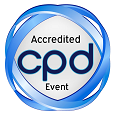
Yahdiana Harahap
Universitas Indonesia, Indonesia
Title: Bioanalytical method development and its validation are significant in conducting bioequivalence study
Biography
Biography: Yahdiana Harahap
Abstract
The main challenge in conducting bioequivalence study, in this case bioanalytical method development, is the determination of analyte or metabolite in biological matrices primarily plasma, serum, and urine. It is performed due to the low drug level in biological matrices so that it requires sensitive, selective & accurate method. Development of bioanalytical method is a well-planned process in finding new method or modifying and improving the performance of on-going method, so that it is in accordance with its goal. After obtaining the optimum bioanalytical method, the next step is performing the validation method. The main objective of method validation is to demonstrate the reliability of a particular method for the determination of an analyte concentration in a specific biological matrices. The main characteristics of a bioanalytical method are essential to ensure the acceptability of the performance and the reliability of analytical results. The parameters are: selectivity, lower limit of quantification (sensitivity), accuracy, precision, carry over, linearity, matrix effects, stability of the analyte(s) in the biological matrices and stability of the analyte and internal standard in the stock solutions and in extracts under the entire period of storage and processing conditions. Once a valid method is acquired then it can be applied in bioequivalence study.
Keywords: Bioequivalence study; bioanalytical method validation; analyte, metabolite, biological matrices

